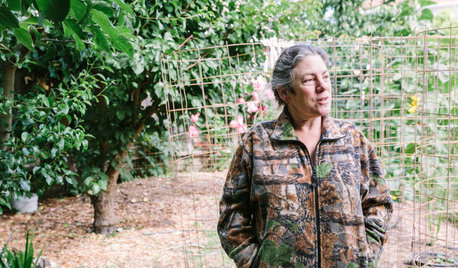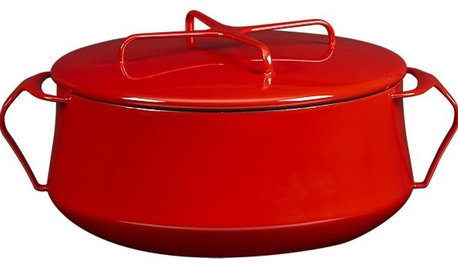Is there such a food?
ms_minnamouse
12 years ago
Related Stories

FARM YOUR YARDTo Get the Food They Believe In, These Urbanites Grow Their Own
Home gardeners farming on their city lots find that local, organic food isn’t the only reward
Full Story
FARM YOUR YARDHello, Honey: Beekeeping Anywhere for Fun, Food and Good Deeds
We need pollinators, and they increasingly need us too. Here, why and how to be a bee friend
Full Story
FARM YOUR YARD6 Things to Know Before You Start Growing Your Own Food
It takes time and practice, but growing edibles in the suburbs or city is possible with smart prep and patience
Full Story
FRONT YARD IDEASWelcome Edibles Into the Front Yard for Fresh Food and More
Give your front yard design a boost and maybe even make new friends by growing fruits and vegetables
Full Story
KITCHEN STORAGEPantry Placement: How to Find the Sweet Spot for Food Storage
Maybe it's a walk-in. Maybe it's cabinets flanking the fridge. We help you figure out the best kitchen pantry type and location for you
Full Story
PRODUCT PICKSGuest Picks: Oven-to-Table Food Service
Serving food in the same dish it was cooked in means more time with guests and less time cleaning up
Full Story
ARTFood Art Adds Flavor to Rooms
Scrumptious paintings and prints in mouthwatering colors show off your good taste way past the kitchen
Full Story
KITCHEN DESIGNDeliciously Simple: Food Photographer Warms Up a Rental Kitchen
See how a San Francisco cook and blogger makes her small kitchen shine
Full Story
HOLIDAYSShow Us Your Party-Time Food and Drink Station
Entertaining season is upon us, and we want to see photos of how you keep guests refreshed
Full StoryMore Discussions








mazer415
ms_minnamouseOriginal Author
Related Professionals
Auburn Hills Architects & Building Designers · Ridgefield Park Interior Designers & Decorators · View Park-Windsor Hills Interior Designers & Decorators · Houston Furniture & Accessories · Memphis Furniture & Accessories · Portage Furniture & Accessories · Chino Hills Furniture & Accessories · Fountain Furniture & Accessories · Beaumont Cabinets & Cabinetry · Beaumont Flooring Contractors · Los Angeles Flooring Contractors · Mount Vernon Flooring Contractors · Oswego Flooring Contractors · San Tan Valley Flooring Contractors · Waunakee Flooring Contractorsharebelle
annzgw
kittens
kittens
cynthia_gw
harebelle
cynthia_gw
harebelle
calliope
harebelle
ms_minnamouseOriginal Author
ms_minnamouseOriginal Author
roobear
calliope
harebelle
cynthia_gw
ms_minnamouseOriginal Author
annzgw
kittens
roobear
ms_minnamouseOriginal Author
roobear
ms_minnamouseOriginal Author
roobear
ms_minnamouseOriginal Author
roobear
cal_dreamer
cynthia_gw
ms_minnamouseOriginal Author
joepyeweed
annzgw
ms_minnamouseOriginal Author
Chi
roobear